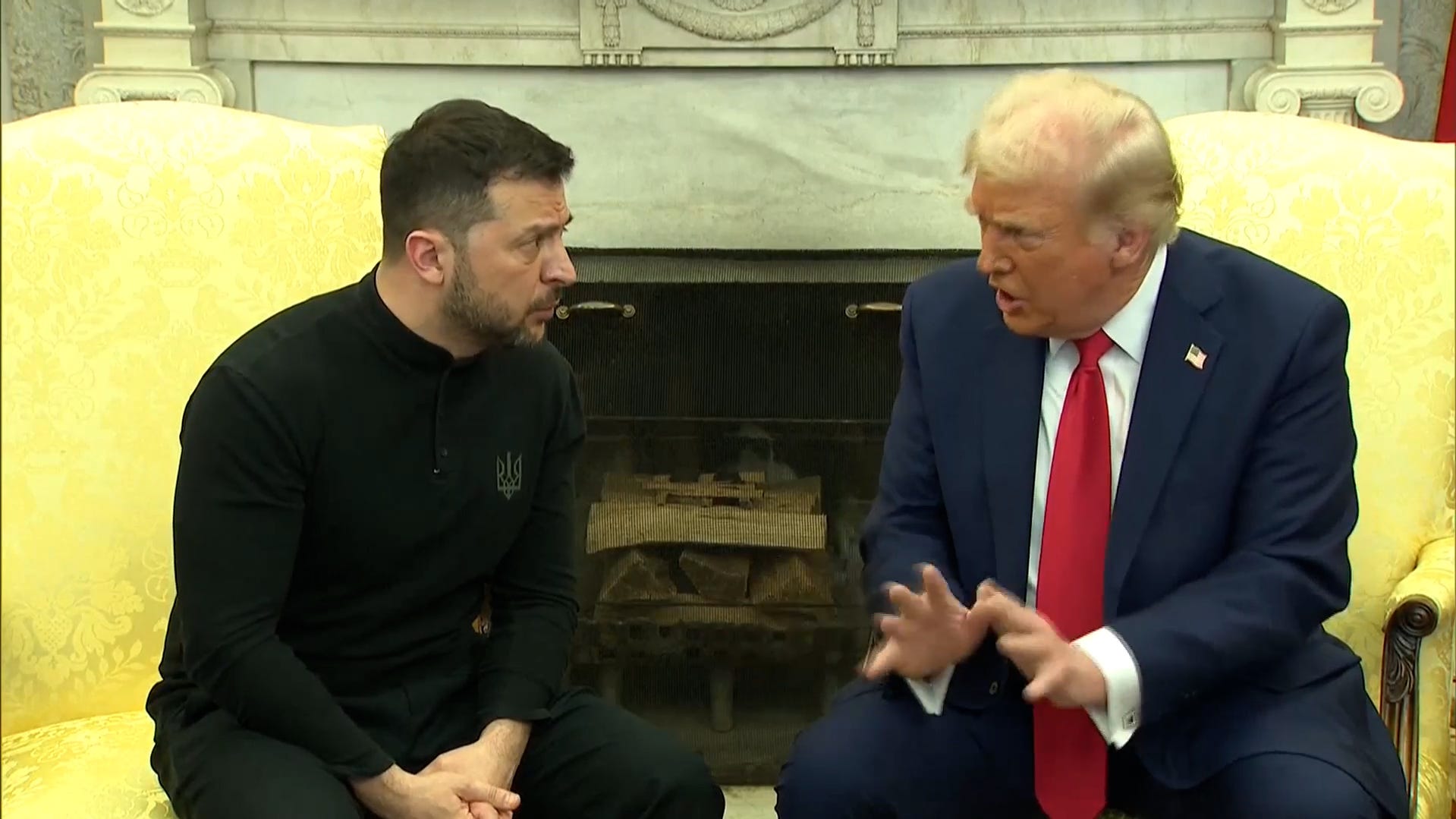Johnson: Zelenskyy has to 'come to his senses' or 'someone else needs to lead' in Ukraine

WASHINGTON − House Speaker Mike Johnson, R-La., suggested Sunday that Ukraine President Volodymyr Zelenskyy may need to resign to salvage the nascent Ukraine-Russia peace process, adding his voice to a growing debate sparked by the contentious Oval Office meeting between Zelenskyy with President Donald Trump last week.
"Something has to change," Johnson told NBC's "Meet the Press." "Either he needs to come to his senses and come back to the table in gratitude, or someone else needs to lead the country to do that."
Johnson's comments align with those of other officials like Sen. Lindsey Graham, R-S.C., who suggested that Zelenskyy step aside in remarks to reporters after the Friday meeting.
"He either needs to resign or send somebody over that we can do business with, or he needs to change," Graham said.
Michael Waltz, Trump's national security advisor, agreed.
"We need a leader that can deal with us, eventually deal with the Russians, and end the war," said Waltz during a Sunday interview on CNN's "State of the Union." "And if it becomes apparent that President Zelenskyy's either personal motivations or political motivations are divergent from ending the fighting ... we have a real issue on our hands."
Most Democratic lawmakers and some Republicans, such as Sen. James Lankford of Oklahoma, believe Zelenskyy should remain in place.
"I think that would spiral Ukraine into chaos right now," said Lankford on "Meet the Press." The senator added he believes Trump and Zelenskyy "understand each other" and will continue working toward negotiations.
Where do negotiations for peace in Ukraine stand?
The Friday meeting between Zelenskyy and Trump collapsed into a chaotic three-way shouting match − in front of TV cameras − that also included Vice President JD Vance. Instead of signing an agreement for the U.S. to develop and share revenue from Ukraine's rare earth minerals, Trump ended the day hours earlier than planned and without a deal when he demanded the Ukrainian president leave the White House.
The Trump administration says it wants to bring the combatants to the negotiating table, and Secretary of State Marco Rubio met with Russian diplomats Feb. 18 in Saudi Arabia to begin working toward peace talks. Russia, which invaded Ukraine in February 2022, occupies significant portions of its neighbor's territory amid the ongoing conflict.
But Zelenskyy wants Europe and the U.S. to provide certain promises to Ukraine before talks with Russia begin. "Peace can only come when we know we have security guarantees, when our army is strong, and our partners are with us," he said in a post on X.
It appears Europe will play a major role in getting talks back on track. Trump called U.K. Prime Minister Keir Starmer and Italy Prime Minister Giorgia Meloni on Friday, Waltz revealed during his Sunday interview. Starmer also visited the White House last week, as did French President Emmanuel Macron.
Waltz said the discussions with those leaders included talk of "European boots on the ground [and] security guarantees for Ukraine."
On Sunday, Starmer announced additional military aid to Ukraine and declared that he, Macron, and Zelenskyy will develop a peace plan and present it to American officials for consideration.
But the extent of U.S. involvement in security guarantees − beyond the potential mineral deal − looks like it's still a sticking point.
Waltz, in his CNN interview, said any security promise "needs to be European-led ... what type of support we provide or not is to be negotiated." Starmer, by contrast, said a European peacekeeping contingent would itself require "a U.S. backstop" to guarantee its own security.